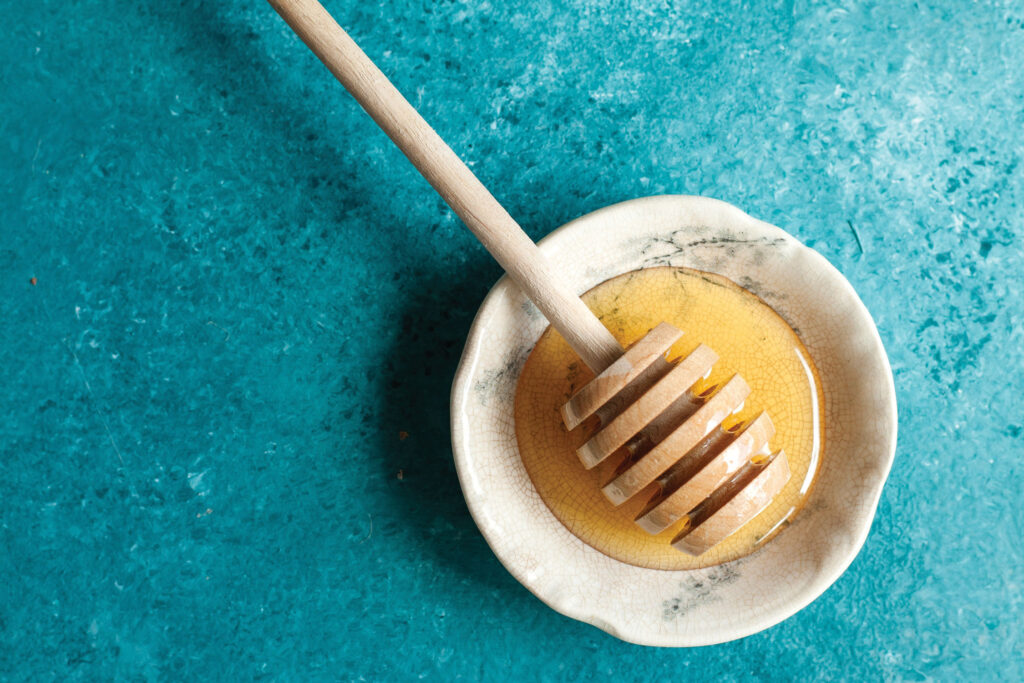Advertisement
Keeping the Kids All Right
Natural fixes for common complaints

Fall is almost upon us, and we know what to expect: a return to school, sports, new activities, and a fresh routine. Prepare to help your child meet these pursuits—and the crisp weather—in the best possible health with these fixes for some of kids’ common complaints.
Advertisement
The problem: Eczema
Brian Davies, a Vancouver-based naturopathic doctor, frequently sees kids with eczema. He views food intolerance as the root of the condition and recommends allergy testing for eczema-prone children to pinpoint exactly what they’re allergic to first. As well, probiotics are being studied for their use in treating and preventing eczema.
The natural solution
According to one study, the children of mothers with a family history of eczema and who were treated with the probiotic Lactobacillus rhamnosus pre- and postnatally experienced a significant decrease in their risk of eczema.
How it works
Davies often prescribes daily Lactobacillus rhamnosus in capsules or dissolved into water. Probiotics help balance the levels of “good” and “bad” bacteria in your gut.
Advertisement
The problem: Colic
Colic is often defined using the “rule of 3” where a healthy, well-nourished baby inexplicably cries intensely for at least three hours per day on at least three days a week for at least three weeks.
The natural solution
A homeopathic remedy is often used to calm colic. In a study of 200 children ranging from two months to six years old, a homeopathic remedy containing five different ingredients was compared with Simethicone—a drug prescribed to relieve gas symptoms. The homeopathic solution was significantly more effective, led to quicker remission of symptoms, and made for more highly satisfied parents.
How it works
Homeopaths prescribe small pilules (tiny white pills) that can be inserted under the tongue or dissolved in water and inserted into the infant’s mouth with a syringe. Lac defloratum soothes digestive discomfort from drinking milk; Chamomilla helps ease restlessness and dissatisfaction, pain, colic, and flatulence; and Cina takes care of gastrointestinal spasms and irritability.
Advertisement
The problem: Diarrhea
In children, diarrhea is most commonly triggered by a virus.
The natural solution
To avoid dehydration, give plenty of fluids, and when your child feels ready for regular foods, try bananas, chicken, crackers, pasta, or rice cereal. Probiotics can also be considered to help alleviate diarrhea.
How it works
Eating fibrous foods helps bind loose stool, while probiotics help rebalance the gut flora to get things back on track in cases where the diarrhea is caused by a virus.

Advertisement
The problem: Reflux
In children, as in adults, reflux is often caused by dietary triggers including fried or spicy foods, chocolate, high-acid foods such as oranges and tomatoes, peppermint, milk, or caffeinated sodas. Increased weight in children can also cause pressure on the abdomen, causing stomach acids to flow back into the esophagus.
The natural solution
Kate Klein, a naturopathic doctor based in Ajax, Ontario, tells parents to diarize what their child eats and monitor their symptoms, so they can determine what to eliminate from their child’s diet. Infants can be breastfed, in an upright position, slower, smaller, and more frequent feedings, taking more time to burp the baby. Older children can be offered smaller meals, avoiding high-fat foods, to decrease reflux and also encouraged to stay upright after eating for a couple of hours.
How it works
Eating smaller meals and remaining upright while the food digests decreases the opportunity for stomach acids to back up.
Advertisement
The problem: Coughs
Children catch colds five to seven times per year. Being in close quarters with other kids and their immature immune systems in schools and daycare centres is often to blame.
The natural solution
Honey is a natural remedy to ease coughing in both children and adults. In a 2012 study of 300 children aged one to five years, eating honey led to increased sleep and decreased cough symptoms.
How it works
Give 10 g of honey to your child straight from the spoon or mixed with a noncaffeinated beverage 30 minutes before bed. Some researchers believe honey works because its sweet flavour causes salivation, which triggers mucus secretion, wetting the airway, and abating the cough.
Caution
Don’t give honey to kids under the age of one year. Infants don’t produce the bacteria needed to protect against Clostridium botulinum, spores sometimes found in honey that have been found to cause paralysis in infants.

Advertisement
The problem: Constipation
While the most common causes of constipation are insufficient water or fibre, other causes can also produce constipation, including medications, toilet training before your child is ready, ignoring the urge to “go,” or stress—such as worrying about starting school.
Signs and symptoms
- dry, hard, pebble-like stool that is difficult to pass
- fewer than three stools per week
- crying, discomfort, or pain before passing a stool
- hard belly
- loss of appetite
The natural solution
The most important remedy for constipation is increased water consumption and plenty of dietary fibre intake. Abdominal massage can help get things moving. It’s also crucial to support your child’s microbiome with probiotics.
How it works
Massaging your child’s abdomen, using a clockwise motion, will promote the natural movement of intestinal contents. Probiotics help balance the gut flora and increase stool frequency and consistency in constipated children.

Remedies on the run
Hacks for stocking a natural kids’ apothecary for your car help prepare for unexpected emergencies. To make organizing a cinch, purchase a first aid kit with supplies such as bandages and gauze. Then, consider adding the following suggestions to round out your stock.
Herbal teas
Stash individually wrapped herbal teas such as ginger or peppermint for upset stomach, nausea, and vomiting, or camomile for anxiety. Pack a Thermos of warm water for steeped tea on the go.
Peppermint or wintergreen oils
Add essential oils such as peppermint for headaches or wintergreen for aches and pains. Avoid contact with eyes when using, and don’t apply to open wounds or scrapes.
Tea tree oil
A natural antiseptic for cuts as well as a remedy for fungal infections such as athlete’s foot, tea tree oil is also effective for combatting head lice.
Lavender oil
Used for easing pain, relieving burns, and reducing swelling, lavender oil is also known as an effective natural mosquito repellent, and relieves the itch and pain of bug bites and stings. Lavender oil can also be used as a calming sleep aid.
Aloe vera
Used for treating minor cuts and burns, aloe vera can be found in pure gel form at most natural health stores or can be easily grown indoors. To remove the aloe gel from the plant, break off a leaf, slice it open, and remove the clear liquid substance.
Baking soda
A paste made of baking soda and water will calm bug bites and stings. It also soothes the itch of sunburns, poison ivy, and chicken pox.
Arnica
For bruising, swelling, or insect bites, be sure to have some arnica-based cream or gel on hand. Arnica has been specifically studied in connection with its effects on bruise healing.





